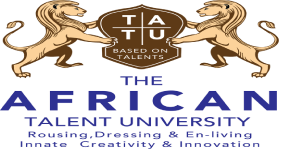This page has been created deliberately because we know whenever someone sees the word “university”, the first thing on his /her mind is:
- “What courses do you offer?”
- “Can I have a prospectus or list of courses?”
- “How many faculties do you have?”
- Is the university accredited / recognised
Talent Based Learning is different from traditional academics in which the learning is common to the entire group e.g. all will attend an Algebra Class and all are expected to pass! In Talent Based Learning, the focus is in your specific talent and the academics are mere enrichment to support by providing further skills and knowledge to grow the talent.
In the process of Talent Based Learning, there will be need for additional skills and knowledge that may be obtained from traditional academic learning units or life experiences. However, these may not require the learner to pick up an entire course but only sections of a course that is relevant to the “Prescribed Talent Focus”. If the learner is able to pick up the entire course, it is still okay.
So the Learning Prescription becomes the most important as it is what is followed as a “syllabus or course outline” by the Talent Expert. You may view it as a prescription from hospital being implemented by a pharmacist ( the expert).
But the prescription will also advise on which member schools, colleges or universities, you will receive additional learning in the form of course units or modules. It is these schools, colleges or universities that will have the syllabus or course outlines or prospectus for the specific course items recommended in the prescription.
As a matter of fact what sense would it make to duplicate and replicate what is already available in abundance and in many schools, colleges and universities?
GATES only implements the prescription and works or harmonizes the process with the Learner , Talent Experts, and Academic Clinics ( member schools, colleges or universities).
Our steps are:
- Be assessed to know your true talent or gift; report produced
- Pick up your Learning Prescription; prescription has litany of items that would best make your talent develop ( specific talent items unique to you- talent genre- supported by specific Talent Expert) and associated enrichment items ( courses from schools, colleges, universities AND Life Experiences)
- Learning through Specific Talent Tasks (Talent Based Learning) and produce designs, merchandises or earth breaking innovations
- Attend various prescribed courses in recommended Academic Clinics (member schools, colleges or universities) to enhance skills and knowledge necessary to improve the Talent Based Learning Tasks in step 3 above; You may exit without writing any exams as our key in these is just knowledge that will be seen in the Talent Task results. If you are able to write the traditional exams, that’s okay, as there is no harm in getting more than one qualification (from Talent Task and usual Academics).
Notes: The list of courses or syllabus will be given from the specific university or college agreed upon after you are assessed for Talent and/or Life/Work Experience. Usually after assessment, options of “member” college or universities are presented , to you, with their fees and you chose based on financial ability and international reputation/ranking of college or university. Once a university is agreed upon, it will avail course content and supervisors/educators who will work with Talent Experts to enrich your Talent Based Learning through “prescribed” courses. It is this university that will finally issue your transcripts and the degree, the normal way. The “member” university must be fully approved by the country government and listed by UNESCO.
5. Once the Talent Based Learning is complete and Talent Talks successfully done, the projects will be presented to World Talent Panel for Talent Validation and declaration of Talent Development, for the specific stage. A “Non-Verbal Array Assessment” panel will evaluate the Talent Task/Project/Design/ Merchandise and assign, interpret and normalize the credits due on behalf of the awarding member schools, colleges or universities
6. The credits will then be presented to the college or university for awarding . You then obtain your qualification (transcripts, certificates, diplomas or degrees) from a school, college or university agreed upon to receive the credits.
Additional Important facts about Talent Based Learning:
- A learner may pick up some course units or modules from traditional learning systems BUT with the freedom to exit such programmes intermittently and without the feeling of ‘an examination is on the way’ or with the no intention of examining the learner on the course unit or module.
- The organization of the learning will thus be flexible to allow the institution hosting these units or modules flexibility just like clinics would do when dealing with patients before final referral to a main hospital for final treatment.
This makes the setup of Academic Clinics to be significantly different from traditional schools, colleges or university setups where students learn based on a known syllabus, using a Time Table, for a registered course, till the end of it. Our members have ratified their policies and understand our Talent Based Learning process.
- The Academic Content Providers are thus the Academic Clinics.
Academic Clinics focus on one or more key components of the curriculum and hone in on improving or enhancing these skills. Our academic clinics are offered in small group settings to reduce anxiety for some students who feel pressure under one-to-one learning. It allows for peer mentoring and confidence building.
Such clinics are also cost efficient for parents. TBL offers monthly clinics covering various core skill areas, necessary to enrich the talent focus. Our Academic Clinics are an excellent and effective way for students to improve their skills and gain confidence.
